Planetary Science
-
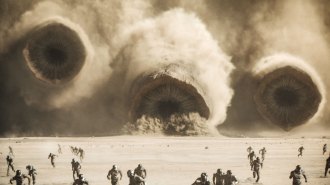 Planetary Science
Planetary ScienceThe desert planet in ‘Dune’ is plausible, according to science
Humans could live on the fictional planet Arrakis from Dune but (thankfully) no giant sandworms would menace them.
-
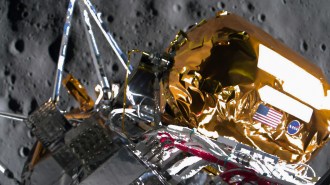 Planetary Science
Planetary ScienceOdysseus’ historic moon mission comes to an end
Odysseus downloaded data from all payloads before going to sleep February 28. The cold lunar night proved fatal to efforts to reawaken the lunar lander.
By Adam Mann -
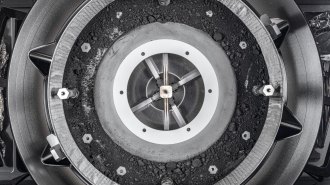 Planetary Science
Planetary ScienceNASA’s OSIRIS-REx nabbed over 120 grams of space rocks from asteroid Bennu
After being stymied by two stuck screws, NASA finally accessed a trove of Bennu asteroid bits. Mission scientist Harold Connolly tells what’s next.
By Adam Mann -
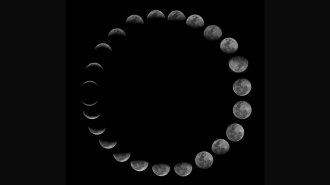 Space
SpaceHow ‘Our Moon’ shaped life on Earth and human history
Science News reviews Rebecca Boyle’s new wide-ranging book, which tells the story of the moon and its relationship with the inhabitants of Earth.
By Shi En Kim -
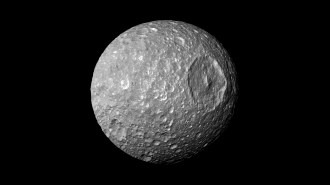 Planetary Science
Planetary ScienceSaturn’s ‘Death Star’ moon might contain a hidden ocean
A fresh look at Cassini data reveals slight changes in the tiny moon’s orbit that suggest the presence of a vast ocean beneath the satellite’s icy shell.
By Adam Mann -
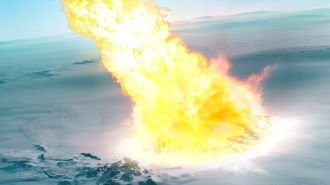 Planetary Science
Planetary ScienceAn asteroid may have exploded over Antarctica about 2.5 million years ago
Tiny spherules of rock found in Antarctic ice may point to the oldest known “airburst,” or midair disintegration of an incoming asteroid.
-
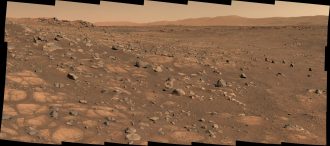 Planetary Science
Planetary ScienceBacteria that can make humans sick could survive on Mars
Experiments suggest that common illness-causing microbes could not only survive on the Red Planet but also might be able to thrive.
By Adam Mann -
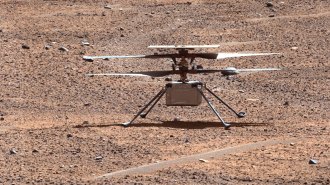 Planetary Science
Planetary ScienceNASA’s Ingenuity helicopter officially ends its mission on Mars
NASA’s Ingenuity helicopter suffered damage during a recent flight and has ended its mission on Mars after nearly three years on the Red Planet.
By Adam Mann -
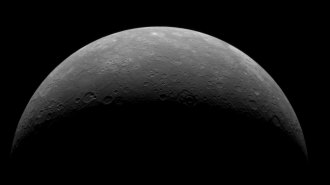 Planetary Science
Planetary ScienceSalt may have carved out Mercury’s terrains, including glacierlike features
Mercury may contain a planetwide cache of salt that has sculpted chaotic terrain and possibly even habitable niches.
By Shi En Kim -
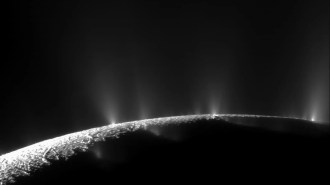 Planetary Science
Planetary ScienceA toxic gas that could help spawn life has been found on Enceladus
Cassini data indicate that hydrogen cyanide, a key building block for life, exists on Saturn’s icy moon. A snakelike NASA robot might test for sure.
By Nikk Ogasa -
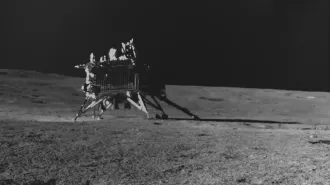 Space
SpaceIn 2023, space missions explored the moon, asteroids and more
This year, spacecraft landed on the moon, dropped off asteroid samples to Earth and started a journey to Jupiter's icy moons.
By Erin Wayman -
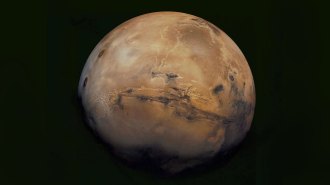 Planetary Science
Planetary ScienceGiant polygon rock patterns may be buried deep below Mars’ surface
A Chinese rover used radar to reveal long-buried terrain that might hint that Mars’ equator was once much colder and wetter.
By Elise Cutts